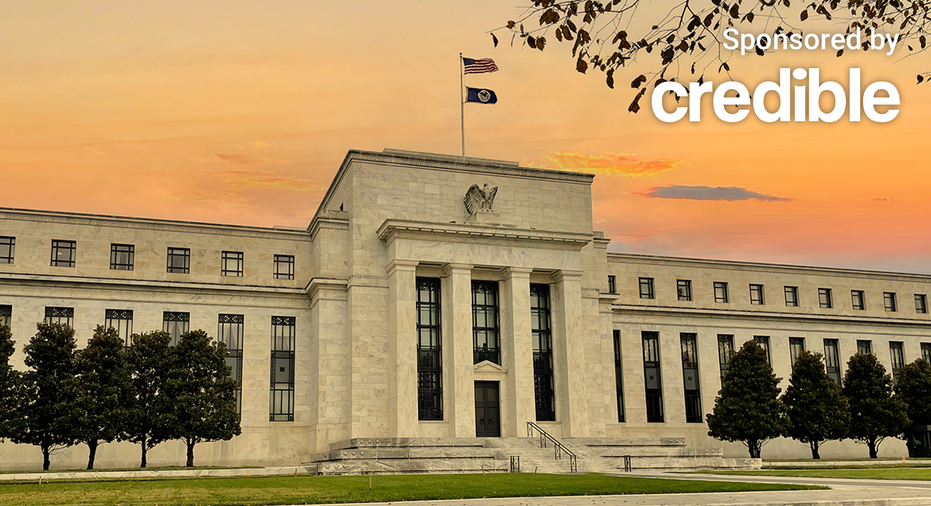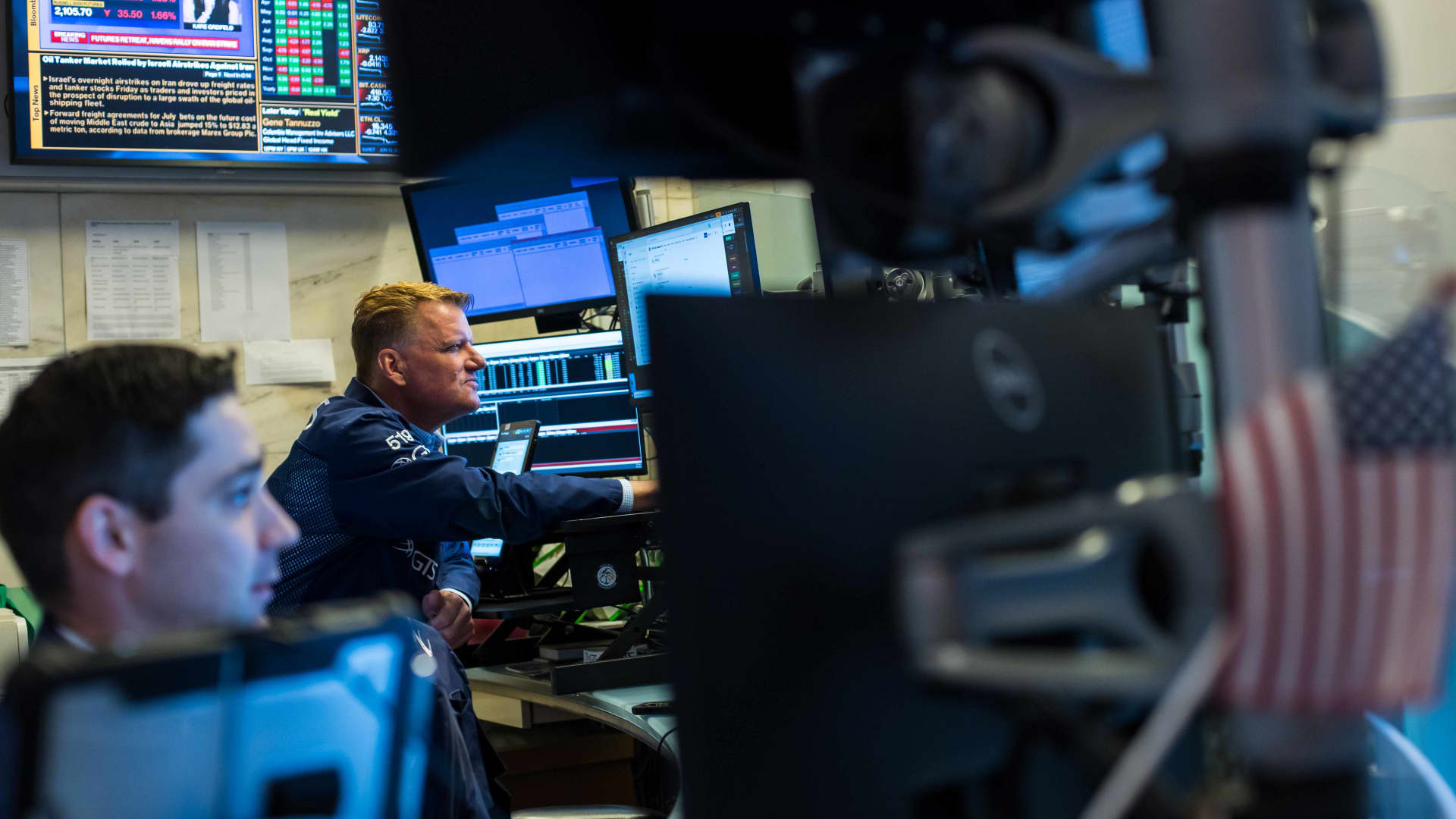The Federal Reserve won’t lower interest rates until its certain inflation will meet 2% target rate. (iStock)
The Federal Reserve said that a lack of progress in bringing inflation down over the last few months is why it is holding interest rates where they are for now.
On Wednesday, the central bank announced it would maintain the federal funds rate range at 5.25% to 5.5%, where rates have held steady since July. Fed officials have said in past meetings that they anticipated rate cuts for 2024 but need more confidence that inflation is heading toward the 2% target rate. Federal Reserve Chair Jerome Powell reiterated this sentiment on Wednesday when speaking with reporters and said it would likely take longer for the central bank to gain this confidence.
“Our restrictive stance of monetary policy has been putting downward pressure on economic activity and inflation, and the risks to achieving our employment and inflation goals have moved toward better balance over the past year,” Powell said. “However, in recent months, inflation has shown a lack of further progress toward our 2% objective, and we remain highly attentive to inflation risks.”
The inflation data registered this year has been higher than the Fed expected. The latest reading of the personal consumption expenditures (PCE) price index, excluding food and energy prices – a key metric the Federal Reserve tracks to measure inflation – increased by 3.7% after rising to 2% in the fourth quarter, raising concerns that inflation may be headed in the wrong direction and could spark another rate increase.
On an annual basis, prices rose 3.5% in March, more than the 3.2% growth last month and above the 3.4% growth economists had expected, according to the Consumer Price Index (CPI) released by the Bureau of Labor Statistics (BLS).
If you’re worried about the state of the economy, you could consider paying down high-interest debt with a personal loan at a lower interest rate. Visit Credible to speak with a personal loan expert and get your questions answered.
SOCIAL SECURITY: COLA INCREASING BUT MEDICARE COSTS RISING TOO IN 2024
Stagflation risk inflated
While inflation ticked up, U.S. gross domestic product (GDP) dropped faster than expected in the first quarter, at an annual rate of 1.6% for the first quarter after rising 3.4% in the fourth quarter, according to the Bureau of Economic Analysis (BEA). Those two factors have sparked concerns about the risk of stagflation.
However, Powell told reporters that those concerns are misguided and said that economic growth remains solid and the PCE, the Fed’s preferred inflation gauge, is under 3%. Powell also noted that it was unlikely that the Fed would raise interest rates again at its next meeting.
“I was around for stagflation. It was 10% unemployment. It was high single-digit inflation and very slow growth,” Powell said, referencing the stagflation in the 1970s, which was triggered by a large spike in oil prices.
If you’re struggling in the current economy, you could consider paying off high-interest debt with a personal loan at a lower rate. You can visit Credible to get your personalized interest rate without affecting your credit score.
MILLENNIALS ARE DESPERATE TO BUY A HOME, MOST WILLING TO PAY A MORTGAGE RATE ABOVE 7%: SURVEY
How higher interest rates impact your wallet
A higher-for-longer policy stance means consumers must brace for a continued high borrowing costs environment. Relief isn’t likely to come until later in 2024, according to Michele Raneri, TransUnion vice president of U.S. research and consulting.
“As long as interest rates remain relatively high, it’s vital that consumers continue to use credit smartly, especially when it comes to higher-interest products such as credit cards,” Raneri said. “It’s best to only use these cards to the extent there is confidence they can be paid off relatively soon, as interest can pile on quickly, particularly at the higher rates of today. In addition, consumers should consider exploring lower interest products to help consolidate their higher interest debt and lower their monthly payments.”
Mortgage rates have ticked above 7% in recent weeks and that, combined with high home prices, has rendered housing unaffordable for many. Borrowing costs will not likely ease until the Fed dials back interest rates. And the same is true for car financing. The average borrowing cost for new vehicles was 7.1% in the first quarter, while used-vehicle APRs rose to 11.7% in the fourth quarter, according to a recent Edmunds report.
“The Fed is signaling with today’s announcement that there isn’t enough confidence that inflation will continue to drop toward the 2% target,” CoreLogic Chief Economist Selma Hepp said. “We will continue to observe interest trends, but we don’t expect a meaningful dip in mortgage rates for the remainder of the year. What is promising, however, is that some markets are showing an increase in inventory, especially on the lower end of home prices. That is the light at the end of the tunnel for the housing market right now.”
If you looking to buy a house in today’s economy, comparing multiple lenders can ensure you are getting the best interest rate. Visit Credible to find your personalized mortgage rate in minutes from multiple lenders at once.
THIS IS THE #1 CITY FOR FIRST-TIME HOMEBUYERS, AND OTHER HOT US HOUSING MARKETS
Have a finance-related question, but don’t know who to ask? Email The Credible Money Expert at moneyexpert@credible.com and your question might be answered by Credible in our Money Expert column.

 Economics1 week ago
Economics1 week ago
 Economics1 week ago
Economics1 week ago
 Economics1 week ago
Economics1 week ago
 Finance1 week ago
Finance1 week ago
 Blog Post1 week ago
Blog Post1 week ago
 Economics1 week ago
Economics1 week ago
 Personal Finance1 week ago
Personal Finance1 week ago
 Economics1 week ago
Economics1 week ago














